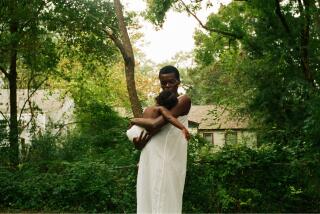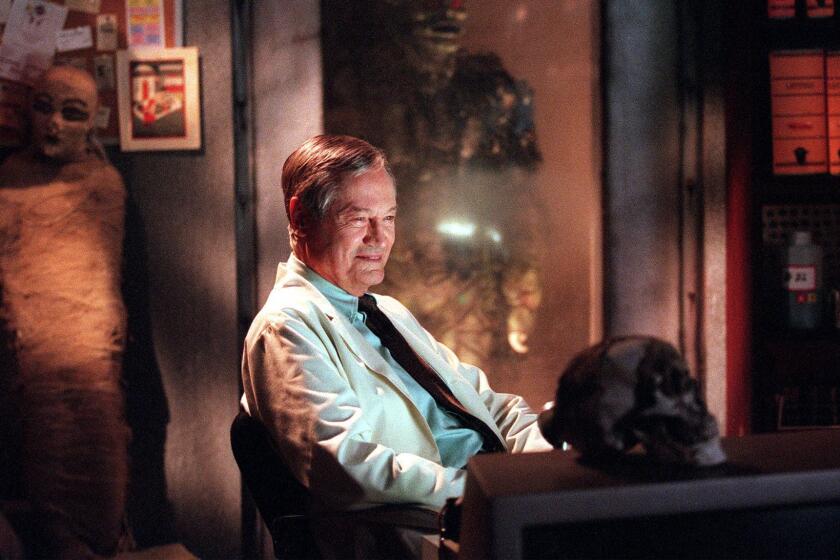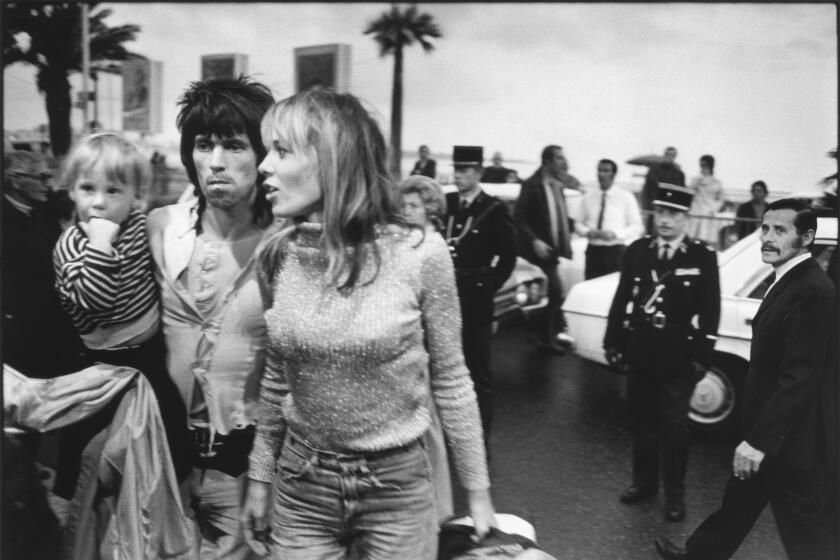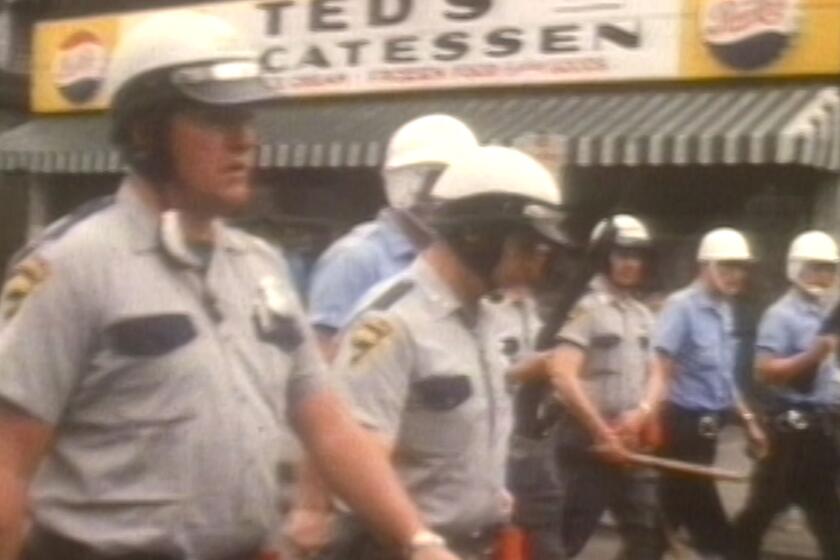NEWS ANALYSIS : Wherefores, Whys (and Why Nots?) : Will the academy voters consider the year’s angriest movie, ‘Born on the Fourth of July,’ to be the best? Don’t bet on it.
Until they were answered Wednesday, the two big questions about the Academy Awards nominations were which four films would join Universal’s “Born on the Fourth of July” on the best-picture ballot, and which four directors would join Oliver Stone on the list of best directors. The question now is, can Stone and “Born on the Fourth” hold on to win?
Given the growing sentiment for Miramax’s independently made Irish film “My Left Foot,” Disney/Touchstone’s “Dead Poets Society” and Warner Bros.’ “Driving Miss Daisy”--three of “Born on the Fourth’s” competitors on the best-picture ballot--the outcome seems very much in doubt.
“Born on the Fourth,” based on the life of a man whose values were reshaped by his disillusionment with his and America’s involvement in Vietnam, got the nominations predicted for it--eight in all--and still bears the strongest Oscar credentials. It is a major studio movie with social effects (much more popular this time of year than special effects) and is doing respectable business at the box office. But at a time when the Red Menace is in full retreat and America’s political tempers are down, you have to wonder if the voters will consider the year’s angriest movie its best.
All four of “Born on the Fourth’s” rivals are smaller, calmer pictures with inspirational messages that are downright sanguine by comparison. “Dead Poets Society” is the tale of a free-thinking English teacher’s effect on intellectually constricted youths in a New England prep school. “Field of Dreams” revives traditional American ideals in a fantasy about a farmer who works out unsolved problems with his father by calling the ghosts of baseball past to workouts in his corn field. “Driving Miss Daisy” takes a leisurely look at black-white civility in the South through the 25-year relationship between a Jewish matron and her sagely chauffeur. “My Left Foot” manages to make both uplifting and entertaining the life of the severely disabled Irish author and painter Christy Brown.
On mood alone, any one of these films might beat “Born on the Fourth.” But traditional voting patterns with academy members give “Dead Poets Society” and “My Left Foot” the best chances. Like “Born on the Fourth,” they were also nominated for best director and best screenplay, a trifecta that’s almost imperative for a best-picture winner.
In analyzing the nominations, it’s important to remember that except for the best-picture category, the nominations are made by the individual branches of the academy. That explains how Woody Allen received nominations for both best director and for best original screenplay while his opinion-splitting “Crimes and Misdemeanors” was overlooked for best picture.
There were notable omissions Wednesday, as usual. “Roger & Me” didn’t make the documentary-feature slate and the two Jacks--perennial Oscar nominees Jack Lemmon and Jack Nicholson--did not make the final five among best actors. Rob Reiner’s highly popular “When Harry Met Sally” received just one nomination, for Nora Ephron’s screenplay. Gus Van Sant’s “Drugstore Cowboy,” a small but very accessible film that won the Los Angeles, New York and National Society of Film Critics’ awards for best screenplay, was shut out altogether.
The failure of the directors’ branch to nominate any one of the three directors of black-themed films--”Do the Right Thing’s” Spike Lee, “Glory’s” Edward Zwick and “Driving Miss Daisy’s” Bruce Beresford--is a troubling footnote to the list of the year’s best achievements.
Lee’s omission is the one surest to rile most film critics. In a soon-to-be-published American Film magazine poll of 80 critics, Lee topped the list of directors and “Do the Right Thing” led all pictures. Lee did get a nomination Wednesday for his screenplay, but it was his boldness as a director taking an uncompromising look at race relations in inner-city Brooklyn that most influenced critics.
“Glory,” whose combination of history lesson, spectacle and critical success made it a perfect Oscar candidate, was omitted from the best picture, director and screenplay ballots, though the film received five other nominations. The fact that two black actors were nominated--Morgan Freeman for “Driving Miss Daisy” and Denzel Washington for “Glory”--hardly reflects a year that produced the most first-rate, mainstream black-themed films in history.
But the most glaring of all the omissions was Bruce Beresford from the best-director list. “Driving Miss Daisy” led all films with nine nominations, and could have taken the front-runner label away from “Born on the Fourth” had Beresford also been nominated. The last time a movie received as many nominations without receiving one for its creative leader was in 1986 when “The Color Purple” (another black-themed film with a white director) got 11 nominations but failed to land Steven Spielberg on the best-director list.
“The Color Purple” did not win any Oscars, but the snub of Spielberg was mitigated personally by his winning the Directors Guild of America award that year. Beresford failed to get a nomination from either group.
Only three of this year’s DGA nominees made it onto the Oscar ballot. DGA nominees Rob Reiner (“When Harry Met Sally”) and Phil Alden Robinson (“Field of Dreams”) were displaced on the academy’s best-director list by Kenneth Branagh (“Henry V”) and Jim Sheridan (“My Left Foot”).
If the academy’s 4,800 voting members follow traditional patterns, they will go for one of the three movies whose directors were also nominated. Tradition also favors films whose directors win the DGA award (only three times since 1949 has the DGA winner not also won the Oscar). That would make Oliver Stone’s “Born on the Fourth” and Peter Weir’s “Dead Poets Society” the leading contenders for the Academy Awards.
But in a year that has seen five pre-Oscar best-picture awards--from four critics groups and the Hollywood Foreign Press Assn.--go to five different pictures, all bets are off. This year’s Oscar show could go the way of 1982’s, when “On Golden Pond” and “Reds” split several of the major awards and “Chariots of Fire” slipped in to win for best picture.
The wise money in office Oscar pools, as at race tracks, will be on the favorite, which still figures to be “Born on the Fourth of July.” But the odds are not as prohibitive as they seemed a few weeks ago. “Born on the Fourth” is not the runaway box-office hit that made Stone’s “Platoon” impossible to ignore in 1987.
Among the best-picture nominees, “Dead Poets Society” is the top wage earner, a summer release that grossed $96 million (10th best on the year’s box-office list) and overcame the industry’s infamously short memory during the nominations period.
“Driving Miss Daisy” has been surprisingly commercial, considering its subject matter, and is getting a boost at just the right time. Warner Bros., which elsewhere suffered disappointments with the shut-out of “Roger & Me” and the general dismissal of “Batman,” has just eased “Driving Miss Daisy” into wide national release. Its continued popular success could persuade enough voters to forsake their director/picture tandem voting behavior and drive “Miss Daisy” all the way.
But don’t be surprised if the smallest film in the field, “My Left Foot,” ends up with the biggest prize. Its nominations for best screenplay and best direction were not unusual, since the director and writer branches of the Academy are small. But the fact that it received enough votes from the general membership to place it on the best-picture ballot indicates more support than almost anyone imagined it had.
More to Read
Only good movies
Get the Indie Focus newsletter, Mark Olsen's weekly guide to the world of cinema.
You may occasionally receive promotional content from the Los Angeles Times.






